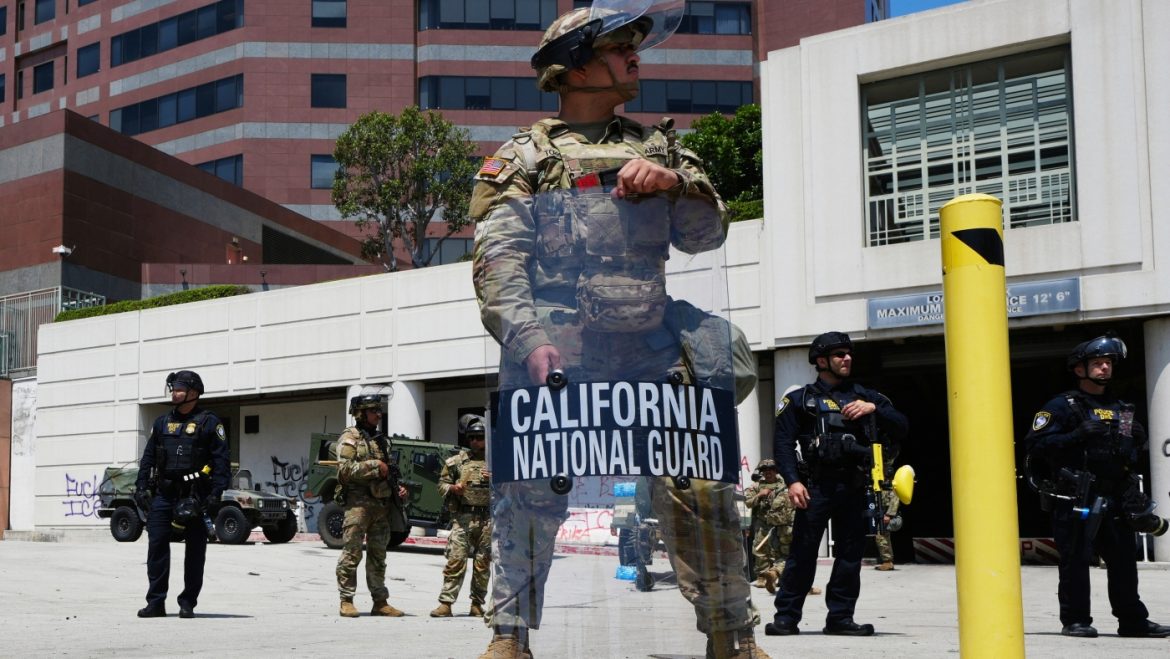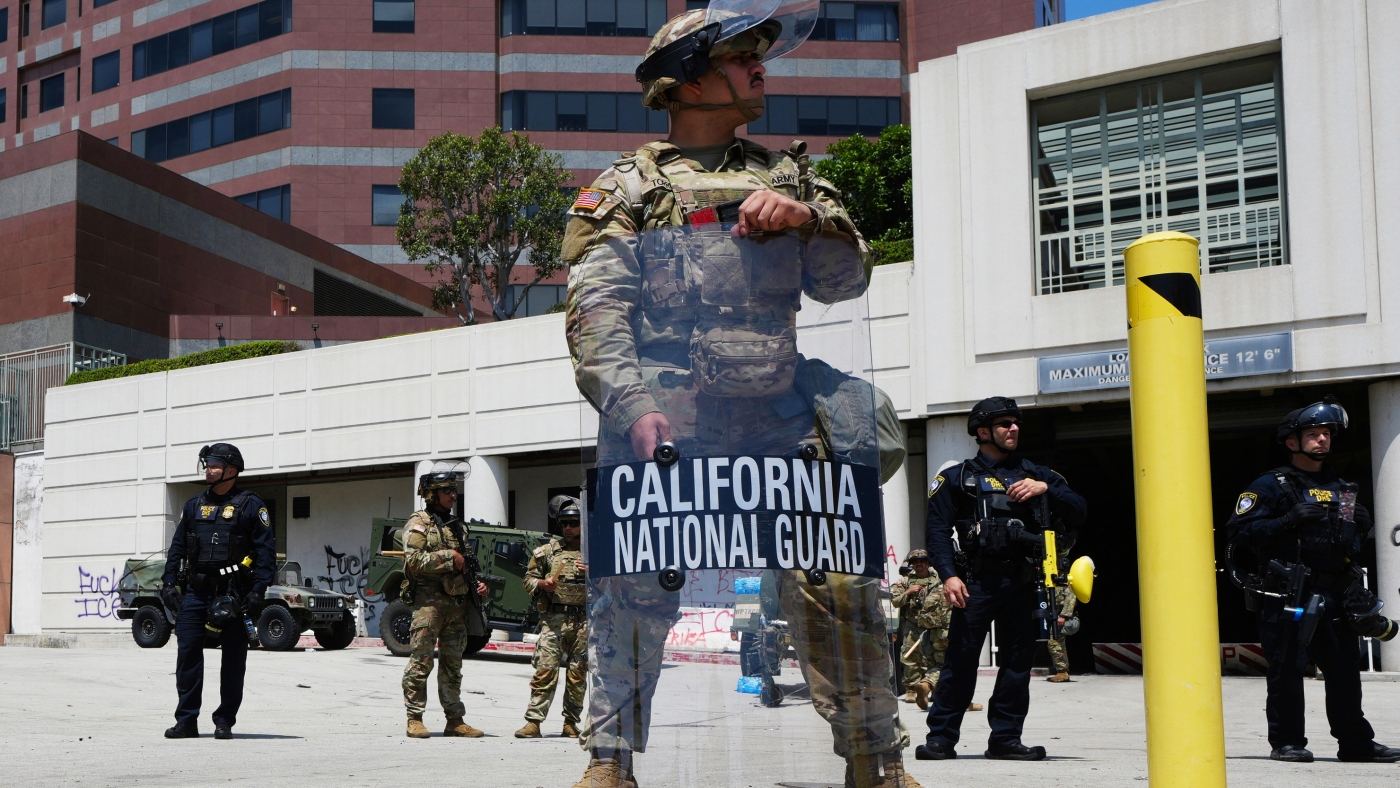Temporary Judicial Check on Trump’s National Guard Deployment in Los Angeles
The recent legal developments surrounding President Donald Trump’s deployment of the National Guard in Los Angeles have sparked a complex clash between federal and state authority, raising important questions about presidential powers, state sovereignty, and the limits of military involvement in civil unrest. A series of court rulings have significantly constrained the federal government’s use of military forces in California, marking a notable judicial intervention that underscores the tension inherent in managing protests and civil order in a federal system.
—
Background: Deployment Amidst Protests and Immigration Raids
President Trump authorized the deployment of approximately 4,000 National Guard members along with 700 Marines to Los Angeles in response to protests triggered by a federal immigration crackdown. These federal forces were meant to assist local law enforcement in maintaining order amid episodes of civil unrest following immigration enforcement actions. California Governor Gavin Newsom pushed back sharply, arguing that the deployment was inappropriate and unauthorized, asserting that Los Angeles faced no invasion or rebellion but rather civil unrest consistent with regular occurrences nationwide.
—
Judicial Response: Limiting Federal Military Authority
A federal judge, Charles Breyer—appointed by a Democratic administration—temporarily blocked President Trump’s directive to federalize and deploy the National Guard in Los Angeles. The judge issued a temporary restraining order (TRO) requiring the administration to return control of the California National Guard to Governor Newsom. This ruling reflected the court’s interpretation that the President overstepped his legal authority by activating state National Guard troops without the governor’s consent, breaching established protocols concerning the chain of command and state-federal military coordination.
The judge emphasized that the United States is not ruled by a monarch and drew comparisons to monarchy systems to highlight the limits on presidential power, asserting that the federal government must respect state sovereignty. This ruling not only halted the deployment but served as a judicial rebuke of the federal approach to using military forces as law enforcement for civil protest management.
—
Governor Newsom’s Position and Legal Battles
Governor Newsom characterized the protests as episodes of civil unrest manageable by local agencies without the need for federal military intervention. He argued vigorously against the military presence, seeking emergency injunctions to prevent troops from acting as law enforcement within the city. Although an immediate restraining order was initially declined by the court, the later temporary ruling favored his position by mandating the return of control over the National Guard to the state. Newsom’s stance highlighted concerns about militarizing public safety responses and the implications for civil liberties.
—
Federal Government’s Appeal and Continuing Legal Uncertainty
Despite the court’s temporary injunction, the Trump administration quickly appealed the decision, signaling an ongoing legal battle over the scope of presidential powers in domestic military deployments. The administration defended its authority, emphasizing the need to support law enforcement amid what it viewed as escalating unrest following federal immigration raids.
This appellate process reflects a broader constitutional debate on federalism: the balance of power between state governors and the federal executive branch in times of crisis. The resolution of this dispute will have lasting implications for future instances where federal intervention in local or state matters is considered.
—
Broader Implications and Context
The court’s ruling and the surrounding dispute illustrate critical themes in American governance:
– Limits of Presidential Power: The judge’s decision reinforces the principle that the President cannot unilaterally assume command over state-controlled National Guard units without respecting legal limits and state authority.
– Federalism and State Sovereignty: The case underscores the importance of states’ rights to manage their own National Guard forces and maintain public order in a manner that aligns with local governance priorities.
– Military Role in Civil Unrest: There is heightened sensitivity and legal scrutiny over deploying military forces in domestic settings, especially where protests concern sensitive social and political issues like immigration enforcement.
– Judicial Oversight in Political Conflicts: The judiciary’s willingness to intervene and place temporary limits on executive action reflects a check-and-balance function designed to prevent potential overreach.
—
Conclusion: A Judicial Check That Resonates Beyond Los Angeles
The temporary blocking of President Trump’s deployment of the National Guard in Los Angeles by a federal judge represents a pivotal moment in the ongoing tension between federal authority and state autonomy. It serves as a reminder that presidential power, particularly in deploying military forces domestically, is not absolute and must operate within the boundaries set by law and respect for state governance structures.
As the legal challenges continue, the case will likely set important precedents on how the United States navigates the difficult terrain of maintaining order during civil unrest while safeguarding constitutional principles of federalism and civil liberties. For stakeholders and observers alike, the unfolding situation offers significant insight into the dynamics of power, governance, and the rule of law amid times of national and local turmoil.


